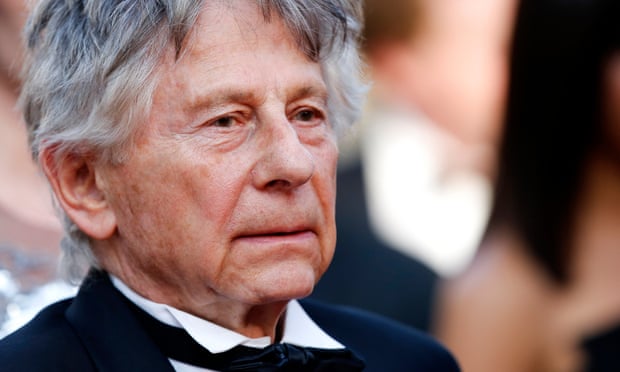Police and protesters clashed briefly outside the French “Oscars” ceremony on Friday evening as the Franco-Polish film director Roman Polanski was awarded the prize for best director.
Immediately after the announcement there was shouting and booing among the audience, and the two actors who announced the award quickly left the stage.
More than 100 angry protestors had gathered to demonstrate against the honour for the controversial director, who is still wanted in the US after pleading guilty to the statutory rape of a 13-year-old but fleeing before being sentenced in 1977.
Even after Polanski announced he would not be attending the Césars awards ceremony for fear of what he described as a “public lynching”, protesters gathered outside the venue to vent their fury at his film J’Accuse/An Officer and a Spy being nominated for 12 awards.
The awards evening opened with the French actor and comedian Florence Foresti, who was hosting the event, announcing “Predators, producers, gentlemen with an electronic bracelet …”
Polanski’s film was given an early César for best costumes, but there was nobody from the production team to collect the prize. It won the second of its three awards for best adaptation.
Caroline Fourest, a filmmaker, author and columnist at Marianne magazine, said the César judges had rewarded “Polanski and not his work … as well as a 100% masculine film”.
Earlier in the day France’s culture minister entered the row saying that to give the controversial director a César would send the wrong signals.
Franck Riester’s comments came hours after Polanski, 87, said he would not attend Friday’s awards ceremony for fear of being subject to a “public lynching” by feminists.
Women’s rights activists are furious the judges gave the director’s latest film numerous nominations.
“It’s for each judge to take responsibility. It would be a bad symbol given the necessary awareness we all need to have in the fight against sexual and gender-based violence,” Riester told France Info radio on Friday.
Polanski’s film, called An Officer and a Spy in English after the Robert Harris novel about the Dreyfus affair, won two prizes at the Venice film festival, including best director.
“Fantasies of unhealthy minds are now treated as proven facts,” Polanski said in a statement on Thursday. “We know how this evening will play out.”
This latest case has relaunched the debate over Polanski’s place in French – and world – cinema, and whether his work can or should be regarded as separate from the man.
Earlier, protestors sprayed anti-Polanski graffiti outside the venue and the headquarters of the French film academy, the Académie des Césars.
Adèle Haenel, the star of Portrait de la Jeune Fille en Feu (Portrait of a Lady on Fire), which has also been nominated for a César, warned she would boycott the event if Polanski attended. She has accused another French director, Christophe Ruggia, of sexually harassing her when she was 12.
“Distinguishing Polanski is spitting in the face of all victims,” Haenel told the New York Times, adding that nominating him “means raping women isn’t that bad”.
“There is a #MeToo paradox in France: it is one of the countries where the movement was the most closely followed on social media, but from a political perspective and in cultural spheres, France has completely missed the boat.” She said France had failed to draw the line between “libertine behaviour” and “sexual abuse”.
The renewed controversy came weeks after the academy resigned en masse. Alain Terzian, its president, had defended the decision to honour Polanski’s film, saying it was not the institution’s role to take “a moral stance” when it came to awards. An open letter signed by more than 200 actors, producers and directors had demanded “profound reform” of the academy, saying it was stuck in the past and criticising its lack of transparency.
The French feminist group Osez le Féminisme (Dare to be Feminist) accused the Césars committee of being a “sexist institution that makes women invisible”.
Marlène Schiaparelli, France’s equality minister, suggested French cinema was still behind the times and had “yet to complete its awakening, its revolution”.
It is not the first time anger and protests centred on Polanski have disrupted the Césars. In 2017, Polanski was named to preside over the awards ceremony but stepped down after a wave of outrage.
The Guardian
















































